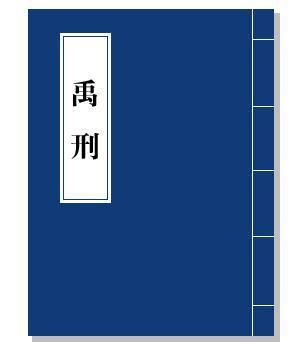Overview
Yu Penalty is the general name of the Chinese criminal law of the Xia Dynasty. It was named after the founder of the Xia Dynasty, Yu. According to legend, Yu succeeded Yao and Shun in establishing the first slave dynasty in Chinese history, and created the meat punishment. Zuo Zhuan – Zhaogong Six Years: “Xia had a chaotic government, and made Yu’s punishment.” Zheng Xuan day: “Xia punishment of two hundred, Bin Pou three hundred, Gong Pou five hundred, wakes, ink each dry” (“Zhou Rituals – Autumn Officials – Division of punishment” note). Tang Law Shu Shu Shu” quoted “Shang Shu Da Zhuan” day: “Xia punishment three thousand articles. The specific content of the Yu punishment has been scattered.

Yu’s punishment
Origin
As a product of the “chaotic government” (i.e., conflicts and contradictions) in the society, the Yu Penal Code was neither an instantly accomplished statutory code, nor was it formulated by Xia Yu personally, but was gradually formed and expanded during the long development of the Xia and Shang Dynasties out of the need to regulate social relations. Its basic content is mainly customary laws of a criminal nature that sanction illegal and criminal acts. As for the name “Yu Penalty”, it is actually just a substitute for “Xia Penalty”. It is generally believed that the name “Yu Penalty” was the name of the law of the Xia Dynasty, which was named in honor of Yu, the ancestor of Xia, and was recounted by later generations. The so-called chaotic government actually refers to the slave riots and rebellions, and was enacted by the slave-owning class to suppress slave rebellions. It is unlikely that such a chaotic government would have occurred at the time of Yu.
Nature and Content
It is generally believed that the nature of Yu’s punishment is equivalent to that of a modern criminal code; the specific content of Yu’s punishment has been impossible to ascertain. However, there are scattered records in the literature. In the 14th year of the reign of Duke Zhao in Zuo Zhuan, it is recorded that “faint, ink, thieves, and kill”. This is the legal text quoted by Shu Xiang of Jin in his reply to Han Xuanzi’s question about the handling of the case of the “dispute over the fields” between Marquis Xing and Yongzi. The words: “The Book of Xia says: faint, ink, thief, kill; Gaotao’s punishment is also, please follow it.” According to Shu Xiang, the rules of “fainting, ink, thieves and killing” in Jin’s “Book of Punishment” were first introduced by Gaotao and later followed by the laws of Xia Dynasty. According to Shu Xiang’s explanation, “faint”: to do a bad thing and steal the reputation of others; “ink”: insatiable, corrupt official discipline; thief: unscrupulous killing, all three crimes are punishable by death. The specific content of the Yu sentence has been no way to verify, after the Han Dynasty, the canonical texts say that the Xia dynasty, many of the penalties, the Eastern Han Dynasty Zheng Xuan said: “Xia punishment, two hundred, Bin Pai 300, Palace Pai 500, wakes, ink each thousand.” There are already “five punishments”.